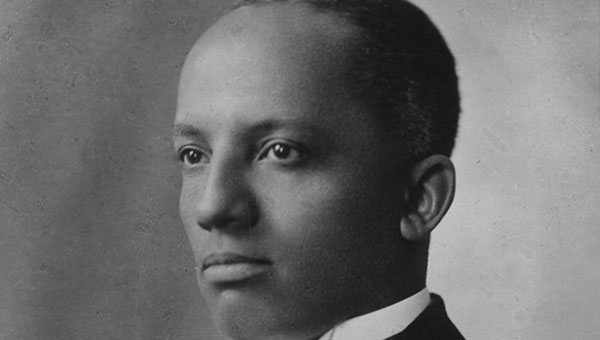By Yvonne Sam
Contributing Columnist
 Black history, in its general and broadest sense, refers to the stories, experiences and accomplishments of people of African origin. The origins of Black History Month lay in early 20th-century historian, Dr. Carter G. Woodson’s, desire to spotlight the accomplishments of African Americans.
Black history, in its general and broadest sense, refers to the stories, experiences and accomplishments of people of African origin. The origins of Black History Month lay in early 20th-century historian, Dr. Carter G. Woodson’s, desire to spotlight the accomplishments of African Americans.
Mainstream historians left out African Americans from the narrative of American history, up until the 1960s, and Woodson worked his entire career to correct this blinding oversight.
He chose the second week of February to celebrate Negro History Week, because that week included the birthdays of two important men: President Abraham Lincoln (February 12); and Frederick Douglass (February 14).
When Negro History Week turned into Black History Month in 1976, the celebrations, normally during the second week of February, expanded to the entire month.
The Association for the Study of African American Life and History expanded Black History Week to a full month and, in 1976, President Gerald Ford was the first President to issue an observance of Black History Month, during the American Bicentennial celebration.
In 1995, after a motion by former federal politician, Jean Augustine — representing the riding of Etobicoke-Lakeshore in Ontario — Canada’s House of Commons officially recognized February as Black History Month and honored Black Canadians.
In 2008, Senator Donald Oliver moved to have the Canadian Senate officially recognize Black History Month, which was unanimously approved.
The irony that exists here is, that the term Black is considered derogatory, yet still African Americans celebrate their achievements under the banner Black.
Whatever we perceive ourselves to be comes into existence. Our perception of ourselves does not have to be based on what the mainstream culture delivers to us, but, instead, should be based on whatever we deliver to ourselves.
I split African people from Black people, in consciousness only, and the underlying rationale being, because they have two entirely different ways of thinking. Across the planet and over the years, Blacks have embraced such titles as Negro, Colored, Afro-American, African American, Haitian, Jamaican, West Indian, etc.
All of these titles are basically false, because if an individual travels to a land, named “whatever”, does not make you a person of “whatever” culture, or alter your cultural identity to “whatever”.
Personally, my firm belief and one to which I will steadfastly cling, is, the fact that in Canada nearly every ethnic group, except Blacks, have got it right.
Italians remain diehard Italian, even if they speak no Italian and have never even seen Italy.
There are Polish people in this nation, who define themselves as such, even though the original Polish person in their family came to North America four centuries ago.
As for the Chinese, well, from an unbiased view, they are all Chinese, regardless of whether they are from China, Hong Kong, Saigon or Vietnam.
What of the African American or Afro Canadian?
We should eventually free ourselves from titles and move toward consciousness, but the evolution has to begin somewhere. We are the only people in this nation, who continue to redefine ourselves, based on things outside of our consciousness.
While Blacks in many nations refuse to identify with each other and/or Africa, we see the power in the self-identification of Jewish people, the world over. An argument can be made, as to whether the Jews are a race or a religion, and that argument is even made within their group, yet, there is nearly universal self-identification, which is one of the main reasons why the Jews are so powerful the world over.
The invasion of so-called Western Civilization brought confusion, including the confusion centered in our very definition of self. We can embrace being Black, but only with the understanding that the most fundamental portion of being Black is being African. The most fundamental portion of being African is being balanced. Balance comes to us based on where we start our study.
Yes, we can trace many great inventions as well as math, science and art to Black people, but we will still have only a cursory attachment to those achievements, as long as we fail to fully embrace an understanding of who those people were and how we are connected to them.
That is why it is extremely important to embrace and celebrate the original consciousness of the African people, as opposed to focusing only on the achievements of these people, after they arrived in North America.
We should eventually free ourselves from titles and move toward consciousness, but the evolution has to begin somewhere.
Yvonne Sam, a retired Head Nurse and Secondary School Teacher, is the Chair of the Rights and Freedom Committee at the Black Community Resource Centre. A regular columnist for over two decades with the Montreal Community Contact, her insightful and incursive articles on topics ranging from politics, human rights and immigration, to education and parenting have also appeared in the Huffington Post, Montreal Gazette, XPressbogg and Guyanese OnLine. She is also the recipient of the Governor General of Canada Caring Canadian Citizen Award.
 Pride News Canada's Leader In African Canadian & Caribbean News, Views & Lifestyle
Pride News Canada's Leader In African Canadian & Caribbean News, Views & Lifestyle






